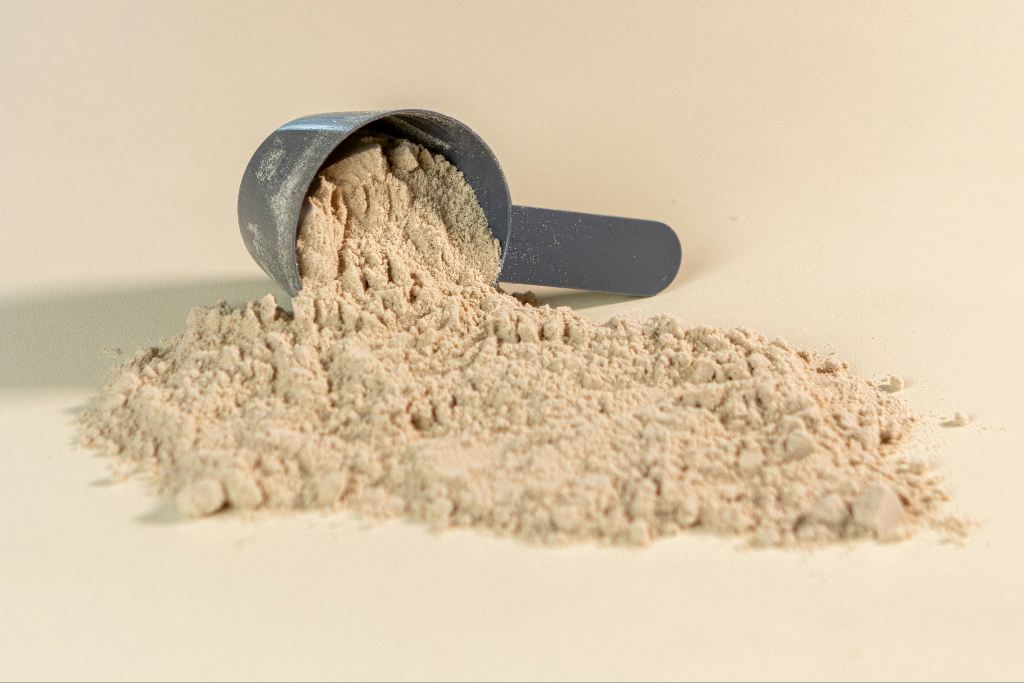Partnering with a functional ingredient supplier that leads innovation helps brands meet consumer expectations and maintain consistent quality. The ingredient categories below highlight effective options for both new product development and formula refinement.











Key Functional Ingredients for Sports Nutrition Applications


Sports nutrition is no longer about calories and macros alone. Functional ingredients support muscle repair, hydration, energy, and antioxidant defense, while demand for plant-based solutions and transparent labels keeps climbing across powders, ready-to-drink, and beyond.
Key Functional Ingredients in Sports Nutrition Products
Choosing the right set of ingredients shapes performance, recovery, energy, and hydration outcomes. Use these snapshots to validate your choices and implement ingredients that resonate with your purpose.
Protein Powders and Plant-Based Protein Powders
Protein remains central to sports nutrition, with whey isolate or concentrate often used in shakes and powders for rapid amino delivery. Casein proteins are more common in slow-release bars or night-time recovery blends where steady absorption is needed.
Plant-based proteins continue to expand across the market, with pea, soy, and rice proteins serving as dairy-free alternatives. Among these, almond protein powder has become a standout option. It provides a meaningful level of protein with naturally low fat, a subtle roasted flavor, and reliable performance across applications. Available in natural, blanched, or organic styles, almond protein powder blends seamlessly into powders, smoothies, energy bars, and ready-to-drink beverages.
For formulators, its solubility and smooth mouthfeel make it particularly appealing in clean-label lines. It complements chocolate, vanilla, fruit-forward, and nut-based flavors, while offering consumers a protein source that feels both familiar, vegan, dairy-free, and premium. This balance of versatility and consumer recognition places almond protein powder at the forefront of protein innovation in sports nutrition.
Carbohydrates and Energy Substrates
Carbohydrates are of course critical for fueling workouts and restoring glycogen. Simple sugars and maltodextrins are commonly implemented in pre-workout gels, sports drinks, and rapid-recovery shakes to deliver immediate energy. Meanwhile, starches and fibers provide more gradual support, making them suitable for endurance formulas, meal replacement bars, and longer-lasting beverage mixes.
Blending fast- and slow-release carbs allows developers to fine-tune performance benefits, from quick bursts of energy during high-intensity training to steady endurance support. In practice, formulators test carbohydrate-to-protein ratios in post-exercise shakes or RTD blends to balance recovery and taste. Moisture control and proper mixing techniques also ensure stability in powders and instant beverages.
Creatine, Amino Acids, and Performance Enhancers
Creatine monohydrate is one of the most validated performance ingredients, often included in pre-workout powders, capsules, or fortified beverages. It supports power output and lean mass, typically at 3–5 grams daily.
Amino acids, particularly BCAAs, are used in intra-workout drinks, recovery powders, or dissolvable stick packs designed to reduce fatigue and muscle soreness. Formulators often add them to energy drinks or flavored water enhancers, where solubility and taste are key. Ensuring compatibility with flavor systems and maintaining stability through processing are important considerations for these performance enhancers.
Bioactive Compounds and Antioxidants
Polyphenols, flavonoids, vitamin C, and plant extracts such as tart cherry or curcumin are incorporated into recovery beverages, functional shots, and antioxidant-fortified bars. These compounds help manage oxidative stress and shorten recovery windows after intense exercise.
Because they can be sensitive to heat, light, or pH, formulators often use encapsulation to extend shelf stability in powders and RTDs. Blending whole-food derived antioxidants with standardized actives allows for both label appeal and functional potency, supporting the consumer demand for clean and natural recovery aids.
Electrolytes and Hydration Minerals
Electrolytes are essential in products designed for hydration and endurance. Sodium, potassium, magnesium, and calcium are commonly added to hydration mixes, effervescent tablets, or RTD sports drinks to replenish minerals lost through sweat and maintain fluid balance.
For targeted sports nutrition, electrolyte blends are often customized. For example, stick packs for endurance athletes may provide higher sodium for long-distance runs, while post-exercise rehydration powders might emphasize magnesium and potassium for muscle recovery. Taste masking, solubility, and protective packaging ensure these blends are effective and palatable across product formats.
Sports Nutrition Formulation Checklist: Quality, Compliance, and Scale
Success depends on aligning sourcing, compliance, sensory performance, and scale. These points serve as a checklist to guide trials, speed up launch, and avoid rework.
Ensure Ingredient Quality and Traceability
Check for certificates of analysis, allergen testing, and third-party audit results. Confirm supplier lot-to-lot consistency and full chain of custody back to farm or processor. A supplier with strong traceability helps avoid delays and quality surprises.
Meet Regulatory and Labeling Requirements
Identify which claims are permitted in target markets (structure/function, nutrient content, etc). Confirm dosing of bioactives or electrolytes stays within regulatory limits. Ensure clear allergen statements and cross-contact controls from early design.
Optimize Taste, Texture, and Solubility
Perform stress tests (heat, humidity, pH) to see how flavor, texture, or potency shift. Adjust particle size or use emulsifiers/encapsulation for better solubility and mouthfeel in mixes. Choose packaging that protects sensitive ingredients over time.
Balance Cost and Supplier Scalability
Calculate ingredient cost at full inclusion levels and project impact on COGS. Make sure suppliers can scale their supply reliably in terms of volume and timing. Consider alternative grades or sources so you can trade off cost vs performance when needed.
Align with Clean Label and Plant-Based Trends
Use ingredient names customers recognize, limit artificial additives, and highlight sustainability credentials. Plant-based protein and clean label formats remain in high demand. Stories about origin, production practices, and source transparency build trust.
Build Winning Sports Nutrition Formulas with Harris Woolf Almonds
The right balance of functional ingredients for sports nutrition applications can power endurance, strength, recovery, and hydration while keeping products appealing and trustworthy. Almond protein powder naturally fits into these systems, offering dependable nutrition and smooth integration into beverages, bars, and powders.
At Harris Woolf Almonds, we provide a range of almond products, from in-shell almonds to almond milk base and almond paste, delivered with a focus on purity, customization, and reliability from pilot runs through full-scale production. Our team works closely with partners to align ingredient formats with processing needs and to support projects that span from clean-label beverages to performance-driven nutrition lines.
Let’s build something that performs well on your line and delights your customers. Request a sample today.
